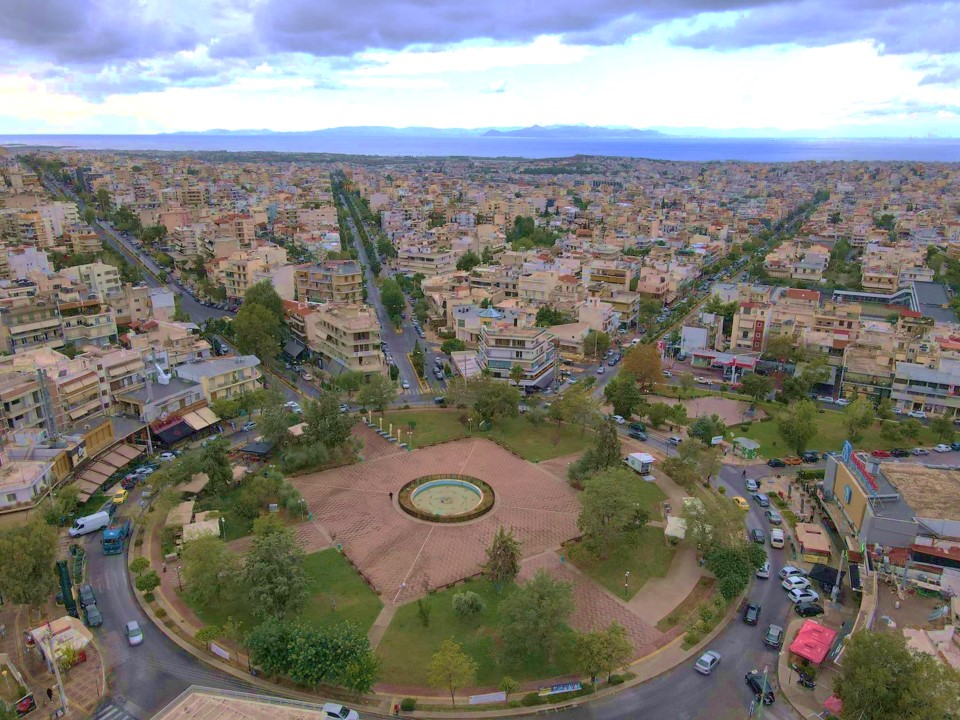Ilioupoli is a little and quite young town next to Athens. Literally the city’s name means “Sun City” – which makes sense for a place that is gifted with this wonderful renewable energy. Much is going on in this area when it comes to community energy. Readers may remember the “City Stories” podcast episode #22 for which we met Thanos Katsonis from the local government of Ilioupoli, and Chris Vrettos who, at that time, was part of the social cooperative Electra Energy.
Three years later, we checked in with Konstantinos A. Kontonikas from the Ilioupoli city administration. Konstantinos is Special Advisor to the Mayor on Town Planning, Technical Projects and Infrastructure. Here’s where they stand and why 2025 will be a year of expectations and new developments.
What is your current ambition in the energy field?
We are currently in search of ways to employ new energy strategies for the municipal and the local community in order to minimise the energy cost, to protect the local environment and to encourage a new energy and environmental practice for the municipality and the citizens. Our goal is to make the municipal of Heliopolis a pioneer amongst other municipalities to lead the way to a more energy effective, sustainable and environmentally friendly future.
What do you expect from getting out of the LIFE LOOP community energy accreditation scheme?
Here’s our wishlist and why we are so motivated to tick the box for all components of the scheme:
- Better skills in the development and implementation of clean energy strategies to increase the use of renewable energy sources (RES) and reduce CO2 emissions.
- Improve the skills of our civil servants and citizens on sustainable practices and energy efficiency.
- Technical Support Assistance in the development of RES projects, including feasibility studies and project planning.
- Networking and new partnerships with other municipalities and organizations to exchange good practices and experiences.
- Easier access to financial incentives, programs and subsidies to support our sustainable energy projects.
- The right tool for us to track our progress, with the goal of getting the certification.
- Strengthening the municipality’s reputation as a pioneer in sustainable development, thereby attracting investment and possibly tourism.
Obviously, our ultimate goal is community participation: We want to encourage citizen participation in actions and initiatives, strengthening local awareness of energy and the environment.

Who are your local partners for community energy and how do you (plan to) collaborate?
Obvisouly, the list of potential local partners for community energy initiatives can include a variety of stakeholders. Each of them can contribute with unique resources and expertise. Ultimately, what counts for us is to enhance the effectiveness and reach of community energy initiatives, fostering collaboration for sustainable development.
Here are the potential local partners we’ve mapped and started working with:
- Community Organizations: Nonprofits and local advocacy groups focused on sustainability, social justice, or energy efficiency can mobilize community involvement.
- Educational Institutions: Schools, universities, and research centers can offer expertise, research capabilities, and educational programs.
- Utility Companies: Local energy providers can collaborate on renewable energy projects, demand response programs, and energy efficiency initiatives.
- Businesses and Corporations: Local businesses can partner in financing, providing technologies, or engaging in corporate social responsibility initiatives related to energy.
- Cooperatives: Energy cooperatives or consumer cooperatives can facilitate community-owned energy projects.
- Faith-Based Organizations: Local churches and other religious organizations can engage their communities in sustainability efforts.
- Residents and Community Groups: Grassroots organizations and neighborhood associations can help identify local needs and mobilize residents.
- Environmental Organizations: Groups focused on conservation and environmental protection can assist in advocacy and education efforts.
- Financial Institutions: Local banks and credit unions can provide funding and financial advice for energy projects.
- Technology Providers: Companies specializing in renewable energy technologies, energy management systems, and smart grid solutions.
In the end, we need everyone to be on board!

